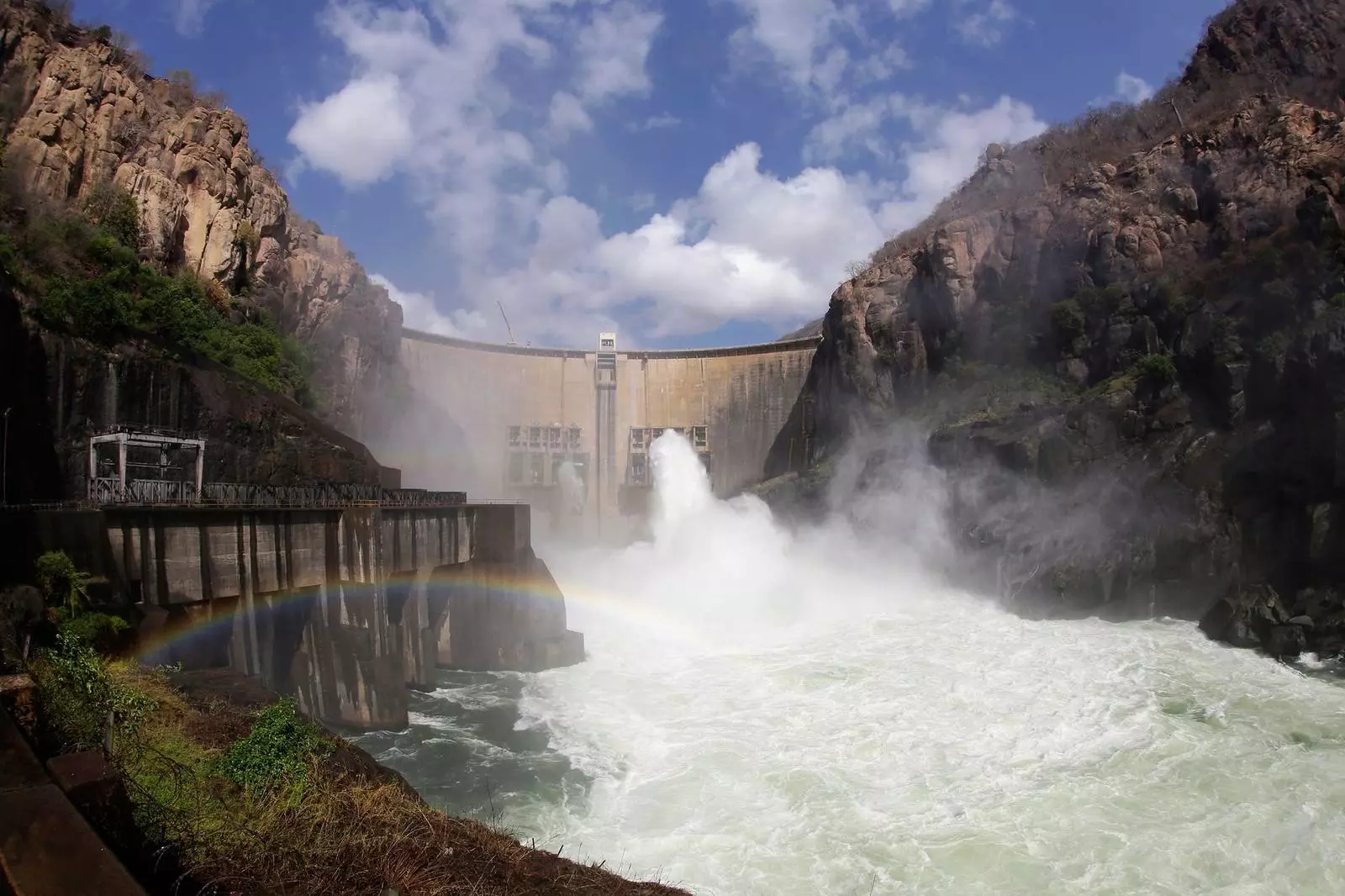The Mozambican government has announced plans to “repatriate” the energy exported to South Africa by the Cahora Bassa Hydroelectric Plant (HCB) since 1979, starting in 2030, according to the Strategy for Energy Transition in Mozambique until 2050. The initiative aims to boost community development and create jobs for 3,000 young people. HCB, with an installed capacity of 2075 MW and majority owned by the Mozambican state, exports most of its production to Eskom, a South African state-owned company, with a smaller part supplied to Electricidade de Moçambique (EDM). HCB’s energy is considered cheap and clean. The Power Purchase Agreement between HCB and Eskom will expire in 2030, leading to important decisions about the marketing and destination of HCB’s clean energy.
On the outskirts of Maputo, Mozal’s aluminum plant operates, powered by electricity supplied precisely by Eskom – a supply contract that ends in 2026 – due to the difficulties of covering the Mozambican electricity grid, which is one of the country’s largest electricity consumers, with needs of 900 MW.
The increase in hydroelectric production capacity will be guaranteed by the new Mphanda Nkuwa hydroelectric plant and the construction of the HCB North station in Tete. The Energy Transition Strategy foresees investments of 80 billion dollars by 2050. President Filipe Nyusi said that the new strategy will put Mozambique at the “forefront of climate innovation” and position it as an attractive and sustainable investment destination.
According to the document, the main short-term hydro priority is the repatriation of electricity from HCB, currently exported to South Africa (8-10 TWh, TeraWatt-hours), as well as the addition of 2 GW of new national hydroelectric capacity by 2031. The plant is the “most important in Mozambique, with a total installed capacity of 2075 MW, and is majority owned by the Mozambican state”.
Since the start of operations in 1979, HCB has exported most of its electricity production to South African state-owned Eskom, with a smaller part supplied to Electricidade de Moçambique (EDM). HCB’s energy is cheap and clean,” reads the document.
Of the total production, only 300 MW of firm energy and 380 MW of variable energy are supplied by HCB to the Mozambican state electricity company. “In 2030, the Power Purchase Agreement between HCB and Eskom will come to an end, and important decisions will have to be made regarding the marketing and final destination of HCB’s clean energy,” it adds.
On the other hand, it is said that in the period from 2030 to 2040, “a further 9 GW of new hydroelectric capacity will be added, including the Lupata, Boroma, Chemba and other sites to be identified, of which up to 3 GW could be reserved for export, depending on the growth in national energy demand, which will take priority”.
“After 2040, Mozambique will add new hydroelectric capacity, mainly for domestic use in projects to be identified and thus exploiting all its hydroelectric potential, which will be reassessed through new studies.”
On November 27, Mozambique’s Ministry of Mineral Resources and Energy announced investments of 80 billion dollars (73 billion euros) in the Energy Transition Strategy, to be implemented by 2050.
Mozambican President Filipe Nyusi said on December 3 at the climate summit that the new Energy Transition Strategy would put the country at the “forefront of climate innovation”.
“This initiative not only puts Mozambique at the forefront of climate innovation, but also positions it as an attractive and sustainable investment destination,” said the head of state, after speaking on one of the panels at the UN summit




